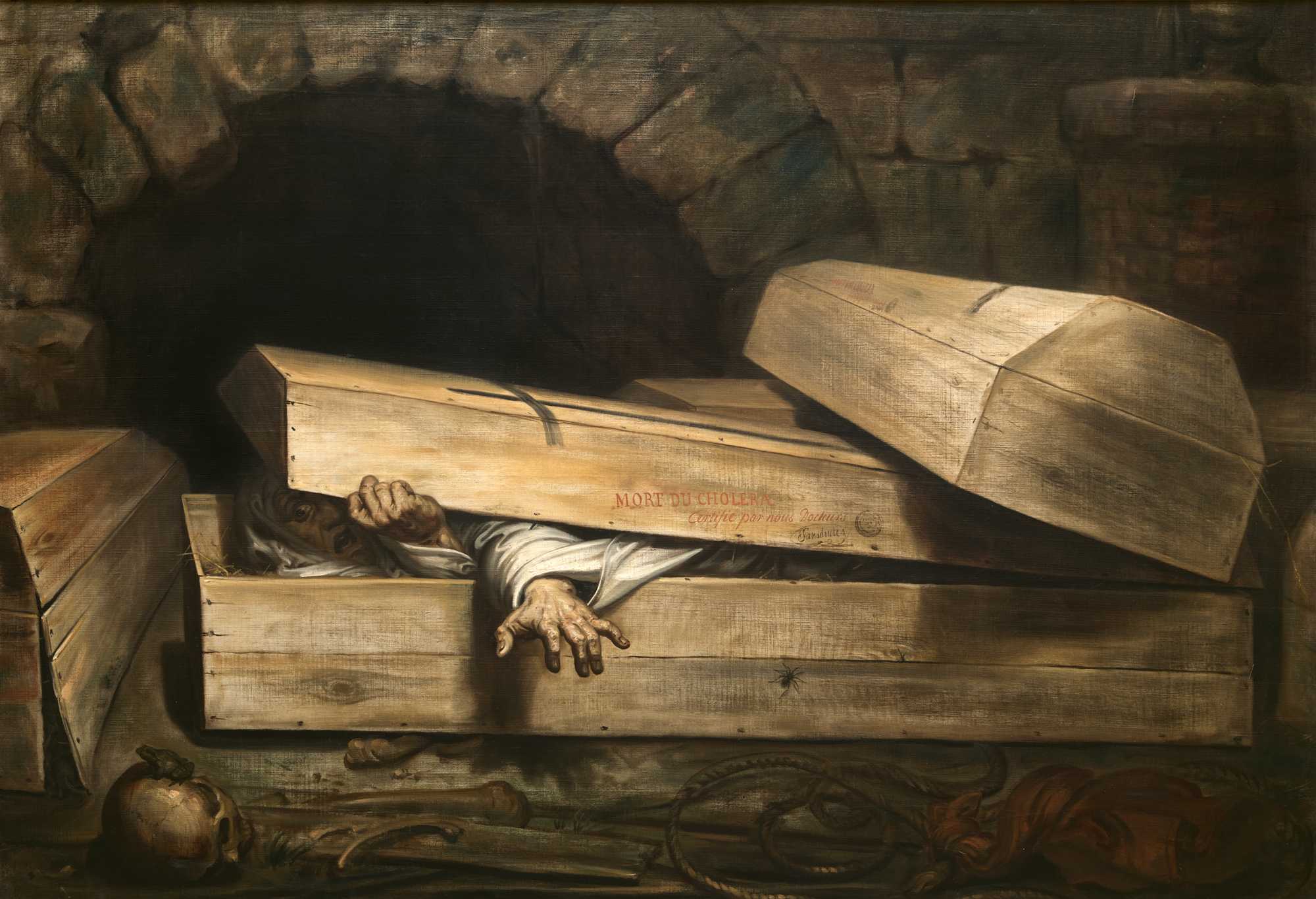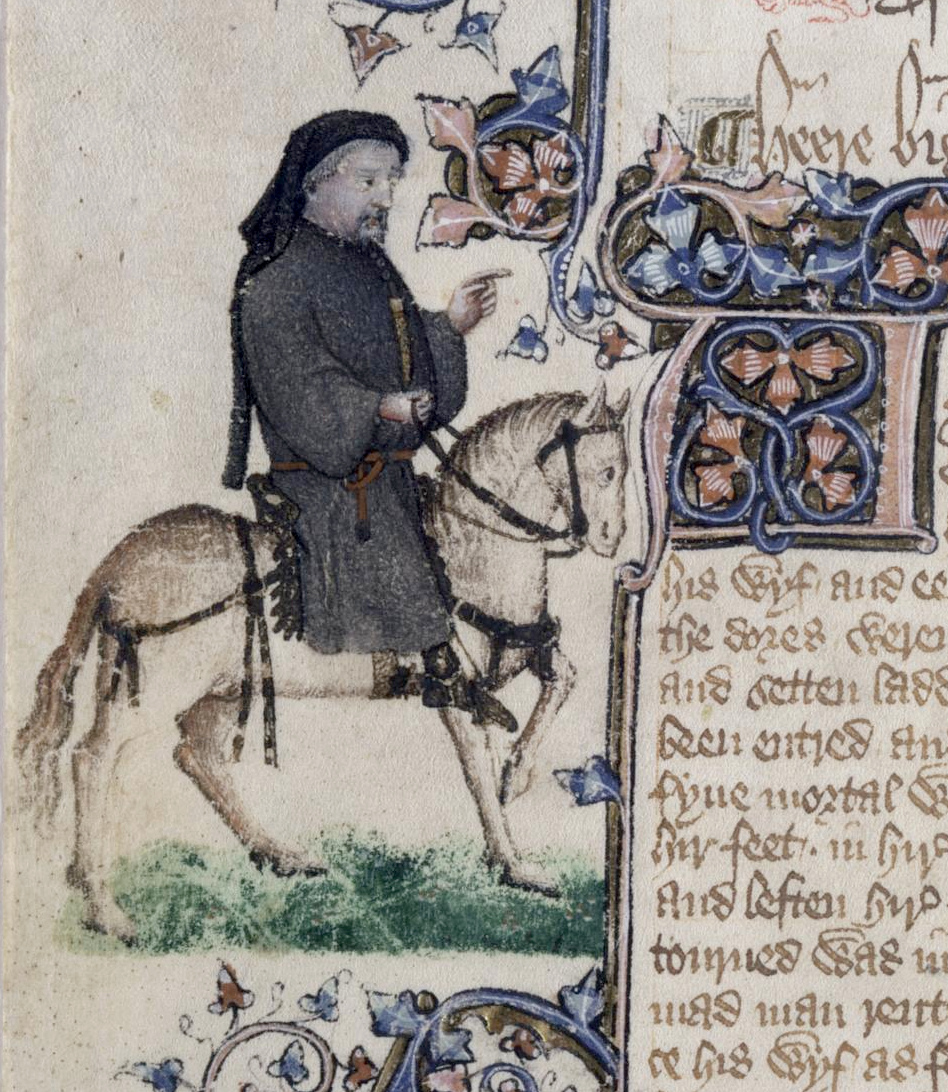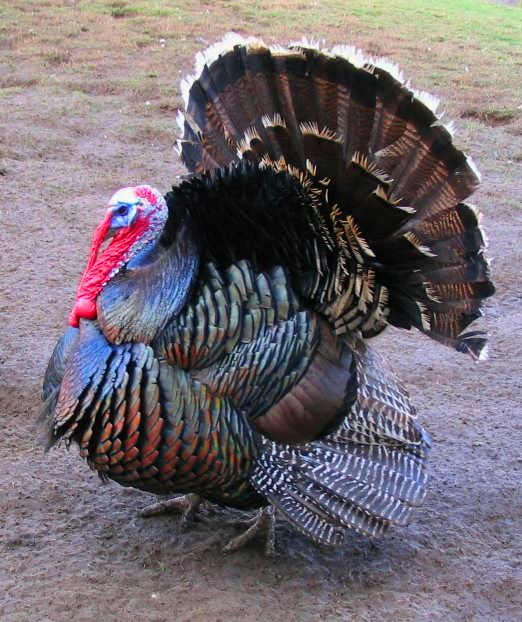
Finally! Master was taking me hunting with him again! I always
love hunting with Master! I get to chase birds and track so many different
animals. And the smells, oh god the
smells! So many new things to smell and follow, and I was so very good at
that. I was Master’s favorite dog and by
far his best dog. When we went hunting
together, we always brought furry creatures home with us to eat.
We set off and walked and walked but I couldn’t pick up any
good scents. Everything was days old and
there was this odor overlaying everything anyway. It made my eyes water and my nose twitch. It smelled like death and decay, but Master
kept pressing on. We walked all day, but
still didn’t find anything.
As the sun fell and night overtook us, we passed a
graveyard. Nasty things,
graveyards. They’re full of dead people
buried in the ground. The whole forest
around them reeks of the decay. I will
never understand why my Master’s people insisted on burying the dead in boxes
in the ground. It makes the smell hang
around for decades!
Anyway, as we passed the graveyard, we noticed a corpse that
wasn’t in the ground. It was standing in
the middle of the graveyard in a white shroud.
Master quickened his steps and I stuck with him. I didn’t want to be left behind with that
creepy thing! Unfortunately, the corpse
had seen us and came after us.
As it leapt at Master, I knew what I had to do. I lunged at the corpse, taking its rotten and
disgusting leg into my mouth to help Master.
I fought as hard as I could, waiting for master to help me and put this
corpse back in its grave. But Master
abandoned me! As I was grappling with that repulsive thing, he ran off to
protect himself! Thankfully, I managed
to get away, but I was very unhappy with Master. He needed to pay for leaving me to face death
without him.
I raced after Master, catching him as he broke into the
clearing around our home. I lunged at Master
as I had lunged at that corpse, showing him how angry I was. He tried to fight me off, but I was
determined. Master needed to learn that
he should not leave anyone to fight off death alone. Especially when I attacked death to save
Master.
People from the village heard our furious fight and came
running, beating me off Master with sticks and whips. And still Master did not try to help me. Even after I had saved him from death and was
trying to teach him a lesson, he left me to be beaten by savages. Well, he was my Master no more and that meant
I need not hold back the next chance I got.
Those savages chained me to a tree without food and without
shelter. Any time my former Master
entered the yard, I tried to break that chain.
Slowly but surely, I began to wear away at the links, breaking them open
until I could escape. The next time my
former Master entered the yard, I charged at him, taking his throat in my mouth
and closing off his air, just as I had done to the animals that I had hunted
for him. I could tell it was working,
but suddenly my world went black. I
could not see, I could not feel, I could not smell anything!
Was this my punishment for betraying my Master even though
he had betrayed me first?
Author’s Note:
I took this story from the tale of The Dog and The Corpse in
the Russian Folktales unit. I followed the
same story line, although the original story focuses on the moujik, the owner
of the dog. I thought it would be really
interesting to see this story from the dog’s point of view. Dogs seem so eager to please and aid their
owners, but when they’re betrayed that eagerness dies quickly. In this case, the owner left his dog to
probably die in his defense while he ran away.
What good dog wouldn’t be disgusted at his master at this point?!
"The Dog and The Corpse" from Russian Fairy Tales by W.R.S. Ralston (1887). Web Source: Mythology and Folklore UN-Textbook.












.png)




.jpg)
.jpg)



.jpg)

